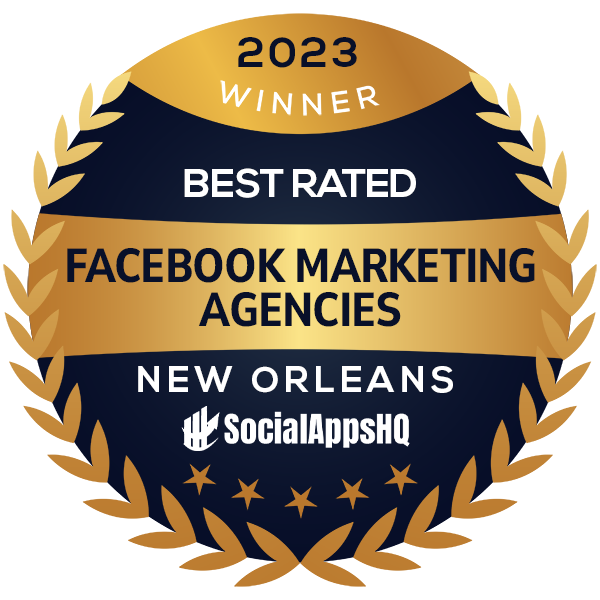Landing Page vs. Blog Post: Which Is Better for Conversions?
In the world of digital marketing, businesses face a critical decision when it comes to presenting their content online. Two essential components of digital strategy include blog posts and landing pages. Each component serves a distinct purpose, and understanding their differences can be the key to their successful contribution to your online engagement and conversion optimization on your website. Come along as we dive further into each of these elements of digital strategy and what makes them essential to creating conversions.

Blog Posts: Key Elements & Advantages
Blogs are a versatile tool that allows content to be written about hyper-specific, long-tailed search queries. They provide an opportunity to dive deep into niche topics, addressing the specific needs and interests of the target audience. The purpose of a blog is not only to inform but also to establish authority and build relationships with readers.
When creating a blog, you want to make sure you are optimizing the content for search engines and creating relevant content that continues to attract organic traffic over time. Incorporating internal links and buttons within blog posts helps guide readers to related content, enhancing their overall experience. Additionally, providing clear contact information and utilizing a short contact form to capture leads can contribute to the blog's effectiveness!
Advantages of Blog Posts:
- SEO Benefits: Regularly publishing high-quality blog content can improve a website's search engine ranking and drives organic traffic over the long term.
- Educational Value: Blog posts provide an opportunity to educate and inform your audience on a hyper-specific topic, positioning your brand as an authority in your industry.
- Staying Relevant: Blogs serve as an excellent platform for featuring relevant content for your customers that is newsworthy, timely, and hyper-local.
- Lead Nurturing: Blog content can be used to nurture leads by answering questions and guiding them through the buyer's journey.

Landing Pages: Key Elements & Advantages
On the other hand, landing pages focus on broader & generic topics, offering in-depth information about a product or service. The primary goal of a landing page on your website is to drive conversions, whether it be making a purchase, signing up for a newsletter, or filling out a contact form. Landing pages are carefully crafted to guide visitors through a specific conversion funnel, minimizing distractions and optimizing the user journey.
Elements to implement in landing pages include: concise and compelling copy, eye-catching visuals, and a clear call-to-action (CTA). Ensure that internal links and buttons are present on landing pages and are strategically placed to lead visitors toward the desired action. The inclusion of contact information and a well-designed short contact form helps efficiently capture incoming leads to help convert a site visitor to a customer. Landing pages are often the first point of contact between a business and a potential customer, so making a strong first impression is crucial for your success!
Advantages of Landing Pages:
- Focused Message: Landing pages allow marketers to deliver a targeted and to the point message, eliminating unnecessary details that may divert the visitor's attention.
- Clear CTA: The singular purpose of a landing page is to guide visitors toward a specific action, making it easier for them to make decisions quickly.
How They Compare: Blogs vs Landing Pages
While blogs and landing pages serve different purposes, they are interconnected elements of a comprehensive digital marketing strategy. Blogs contribute to brand authority, organic traffic, and audience engagement, while landing pages focus on converting that engaged audience into customers.
The choice between a blog post and a landing page depends on the marketing objective and the topic at hand. If the goal is to educate and build a relationship with the audience, a blog post is the ideal format. However, when the emphasis is on conversion and guiding visitors toward a specific action, a well written landing page is the way to go.
Which One Is Best for Conversions?
The debate on whether a blog post or a landing page is more effective for conversions ultimately depends on the nature of the content and the intended audience. Landing pages are designed for specific conversions and are more likely to result in immediate actions. On the other hand, a well-optimized blog post can contribute to long-term conversions by nurturing relationships and establishing trust with your audience.
In the endless tug-of-war between landing pages and blog posts, the answer may not lie in choosing one over the other but rather in integrating them strategically to create a comprehensive marketing plan that fully meets the customer on their buying journey. When utilizing both forms of content, businesses can create a cohesive online presence that maximizes both engagement and conversions. Not sure how to create the perfect marketing plan for your business? Not sure where to star when it comes to landing page content or a blog strategy? Contact The Moran Group today for more information on how you can maximize your conversions! Our digital marketing agency is here to take your content strategy and execution to the next level!








